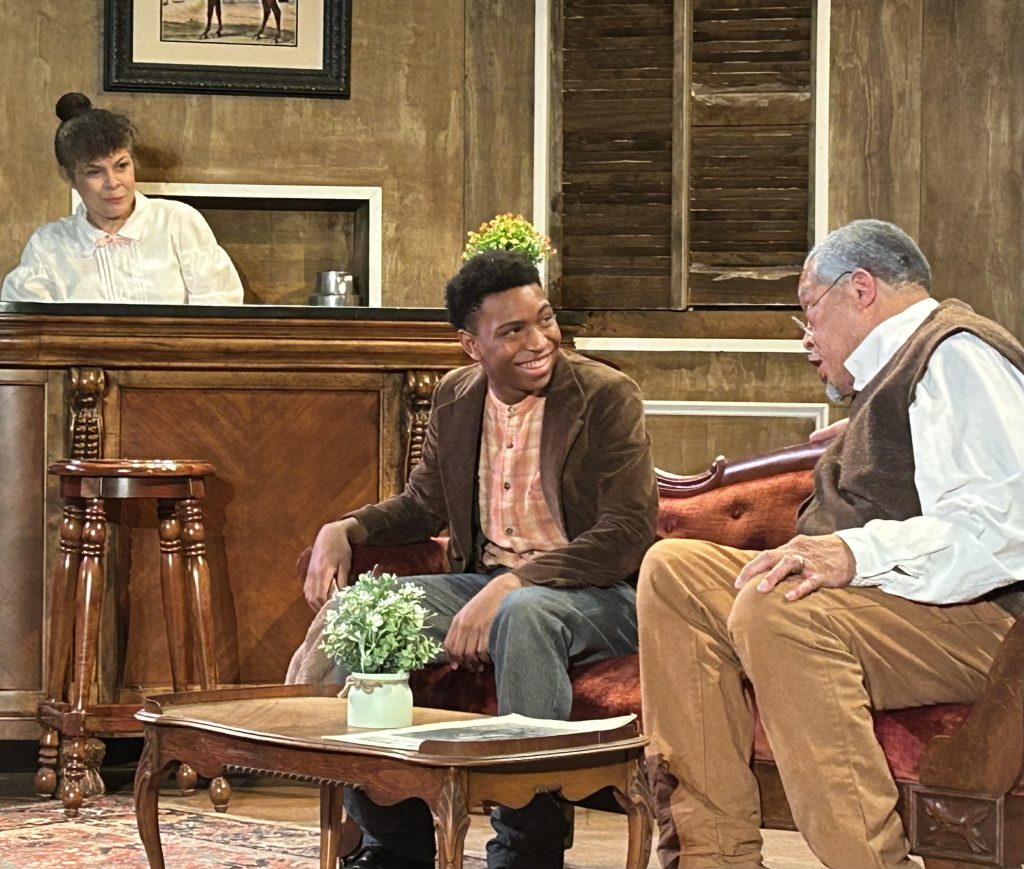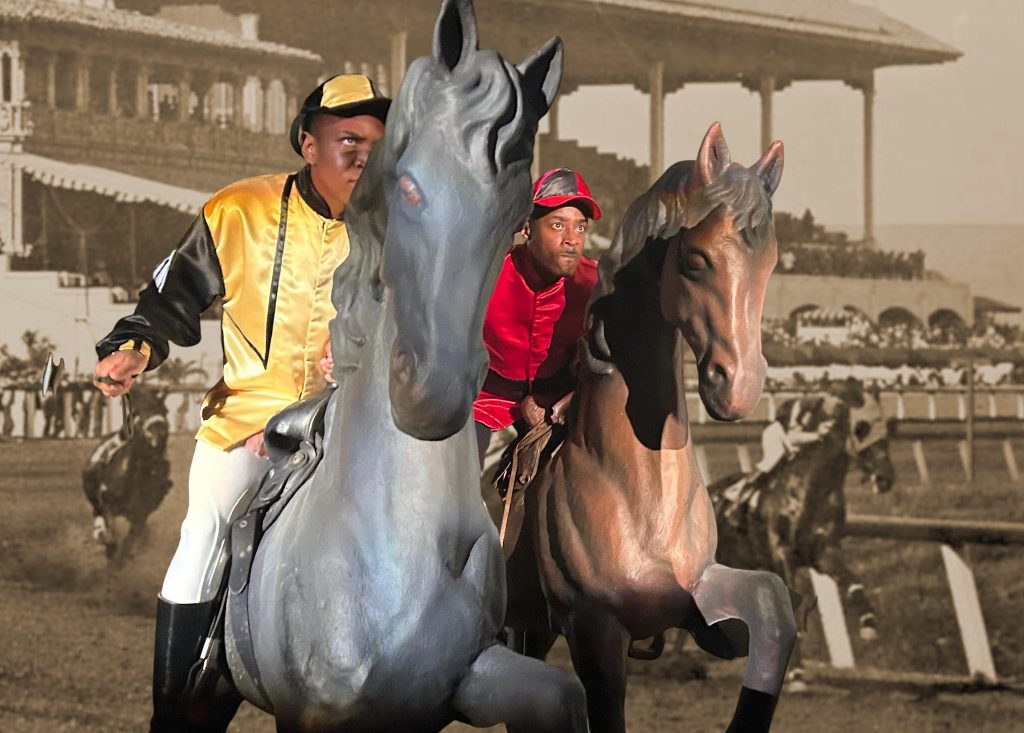Pittsburgh Playwrights’ ‘The Bluegrass Mile’: Win, Place or Show, This Is a Play to Bet On!

Boarding house proprietor Rosa Lee (Chrystal Bates) smiles on the antics of jockey Curtis Henshaw (Kymir Cogdell-Freeman) and perennial border Kermit Thomas (Charles E. Timbers, Jr.).
You gotta love Mark Clayton Southers. For all that he has accomplished in his four-plus decades as a director, producer and playwright, he has championed Black theater with more diehard love than any one artist should shower on his creative energies. In fact, he has directed over 175 productions both here and in regional theaters, and 15 of these directing credits include all ten of August Wilson’s American Cycle plays. Southers even studied with the famed Pittsburgh native, both in South Africa and in Alaska, and he wholly credits Wilson for his passion as a playwright. But that’s not all. Over the past several years, Southers and his Board (not to mention nearly 600 donors in 2023 alone) helped renovate the former Madison Arts Center into a new performing space in the Hill District. Pittsburgh Playwrights Theatre now has its own home and, for the near future, a “security of space” any risk-taking theater company would kill to own.
Playwright Southers has just staged his newest work, The Bluegrass Mile. This is the second production of, perhaps, the first four plays he has written in his own Cycle of 19th Century stories of Black American lives. (The evening’s playbill suggests he has written two earlier plays in the Cycle which have not yet been produced.) The Bluegrass Mile is both history lesson and poetic ode to the fortitude of free men fighting incessant oppression. There is a structure to his work that is reminiscent of several Wilson plays, but here also is a tribute to the classic form of a morality play. That is, there are lessons to be learned. And we are taught much.
As a title, The Bluegrass Mile refers to a first-ever horse race in a small town outside of Louisville. The year is 1899. In expectation of a small purse and the greater opportunity to ride in the famous Kentucky Derby, two young, Black jockeys come to town and board at the house of Rosa Lee Drew. Indeed, by the end of Act One, the young men mount their horses and run the race, but––hold the reins––that’s not what the play is about. Rather, the central character is Rosa Lee and her long-standing, finely-decorated boarding house. It has a history about which we might not have guessed.
Like Wilson before him, Southers does not shy away from including characters that might seem superfluous to the action. Of course, there are the two jockeys, “Abcd” and Curtis Henshaw played by Malic Maat and Kymir Cogdell-Freeman, respectively; each shine brilliantly even when not dressed in his racing silks. And there’s Rosa Lee Drew (Chrystal Bates), inheritor and proprietor of her town’s boarding house, one that serves both white and Black patrons (although one assumes never at the same time.) Bates drives her matronly character with all the fearlessness of a mama bear, willing only to sacrifice her own values to save those who believe in truth and justice. Despite the brevity of her playbill credits, Bates is a highly accomplished actor, as polished and wise as the boarding house she herself embodies. Yet, perhaps there is no character here more engaging than the elder tenant Kermit Thomas. Played with riveting appeal by Charles E. Timbers Jr, Kermit is both the foil and the force by which we come to understand Rosa Lee’s troubled past. Also exceptional is Kevin Brown as the horse trainer, William Pickford, who defends his employer Henrietta Cogsdale (the talented Kendra McLaughin) while confessing his love for Rosa Lee. Last, but not least is the remarkable David Whalen who plays the town’s ignorant Sheriff. His white cowboy hat says more than the gun he waves all too frequently.

Henshaw is in the lead with Abcd (Malic Maat) closing in.
Theatre-goers need prepare only for a long first act concluding with the much anticipated Bluegrass Mile. (Yes, realistic horses are center stage!) Yet, given that’s not what the play is about, the audience will experience in fine form a reckoning, a realization––something Tyler Perry’s famous Madea might call a “coming to Jesus” moment––that liberates both the oppressor and the oppressed. Sure, Souther’s new play could be tightened a notch or two, but if a good horse race always produces a winner, The Bluegrass Mile also promises an historic place and a memorable show. In fact, it’s a good bet this play will run many, many miles more.
Closing credits: Ashley Southers (stage manager), Tony Ferrieri (scenic designer), Madeleine Steineck (lighting designer ), Kimberly Brown (costume designer), Steve Tolin (special effects), Cheryl El Walker (makeup & hair), Ben Cain (sound designer), Ashley Southers, Austin Sills, and Frank Dowling (props).
Photos courtesy of Pittsburgh Playwrights Theatre Company.
C. Prentiss Orr writes about theater for Entertainment Central. He has worked in theater management and has also taught theater.
Share on Social Media
Follow Entertainment Central
Latest Stories
Sign up for the EC Newsletter







